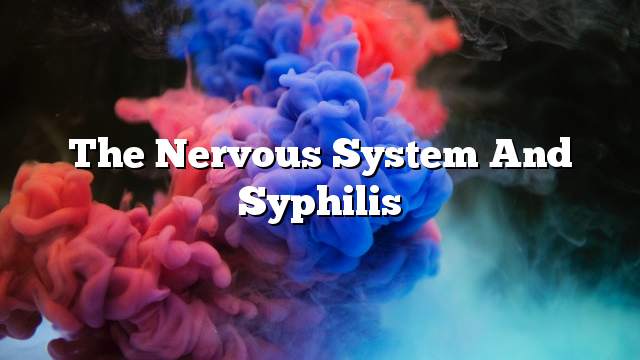Syphilis and the nervous system
As for the effect on the nervous system, it is about 5% of people with syphilis, which have not been treated, and the injury of the nervous system of meningitis, which varies the length of time required in the emergence, the symptoms and signs of ideal headache, nausea, vomiting and fear of light, but with no increase in the degree Heat, and some meningitis may show some effects on the brain nerves.
The effect on blood vessels that feed the brain (which is inflammation of the blood vessel wall) may lead to symptoms and signs similar to stroke.
The syphilis of the nervous system, which affects the tissue of the central nervous system (parenchymal of central nervous system) as a result of the attack of bacteria of this tissue, which may lead to general weakness or weakness (general paresis) or Tabes dorsalis and these cases appear late after 15-20 years Of the primary disease.
General sputum is produced as a result of bacterial attack, which causes cell death and atrophy of the brain. The dorsal tapeworm is produced by the destruction of sensory nerves in the dorsal roots of the spinal cord. A patient with these conditions may exhibit irregular ataxia and may lead to a wide-ranging gait, uncontrolled urine, stool, and numbness in the lower body, as well as loss of sensation of vibration, pain, and heat. Leads to ulcers, inability to sense position, propiception, loss of deep tendon reflexes, muscle weakness, changes in personality, mood, emotional emotion and dementia.
The patient may have a distinctive diagnostic sign of neurodegenerative syphilis, the Argyle Robertson’s sphincter, which is a small, irregular pupil that responds naturally to visual adaptation without response to light.
